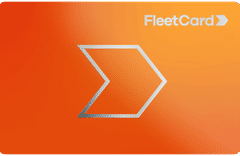If you are an Australian small business owner and you are looking for ideas to increase your tax return, you would need the most information you can gather on tax deductions for small businesses. Regardless of how steady your cash flow is, getting it disrupted by large investments can be disruptive for a new business.
Smartest Tax returns for Australian Small businesses
During the covid pandemic, for a new business having few extra thousands as capital at the disposal of the owner can make all the difference in the world. Many startups have suffered in the past from insufficient capital. And in order to end the financial year with the highest possible profit, deducting taxes is essential to your success. Here are some ideas you should consider.
1. Deduce tax from travel expenses such as aeroplane, train or bus tickets. Moreover, you can deduce expenses for hotels, food and anything else you have needed alongside your business trip. An important thing to note here is that in order to pass eligibility for a tax return you would need to prove to the Australian government that those were a necessity for your trip. Sole traders are also eligible for these deductions.
That is possible by keeping track of what the business activity you attended was and what was its purpose; when did it begin and how long did it last and where it took place.
2. If you own a business vehicle, you can get a tax return on that as well. All running costs and car expenses are deductible in Australia. Which means all repairs, fuel, oil changes, interest on loans for a motor vehicle, as well as registration, lease payments and depreciation are deemed deductible by the ATO (Australian Taxation Office)
3. Asset maintenance is tax-deductible. If the retention of your customers depends on you keeping your property in good order, some maintenance would take place. That includes painting your buildings, any electrical work needed to be done, plumbing and repairing any of the machines used.
It is important to note here that you cannot claim capital expenses
4. Personal contributions to a super fund – if you are making any contributions to your super fund, you can claim a tax deduction on that if you are under the age of seventy-five. Moreover, if you are employed full-time in Australian business, you would need to prove that you have worked at least 40 hours during the last 30 workdays of the financial year.
5. Expenses for home office – Because of the coronavirus pandemic, a lot of employees have been driven away from their full-time positions at the office. That poses both costs for employers and employees. According to the ATO, you can claim a part of your rent as a deduction which is calculated by a simple formula of total expenses times what percentage of the floor space you’re using multiplied by the percentage of the days in the financial year you are utilizing it. Moreover, if you are a small business operating from home, you can get tax returns for internet bills, phone, electricity, etc.
6. First-time startup owners should know that high annual turnover is not enough to score a profit, you need to minimize the costs. Many SMEs capitalize on the following business expenses that can be tax deducted:
- rent for office space
- advertising
- bank charges, insurance fees, etc.
- Wages and bonuses for your employees
- PR and marketing expenses
- Legal expenses and website maintenance costs
- Waste removal and recycling
Most Australian small businesses keep a steady cash flow thanks to these tips:
1. Choose the right business structure for your small business. You may find that your current structure is not the best for your type of work. For example, sole traders may pay taxes at a higher personal rate than they would if they incorporated their business instead. Of course, that depends on the personal environment of the individual or startup and needs to be investigated before making a decision.
2. Pay GST (Goods and services tax) on time. By never being late for GST payments, you ensure that you do not face interest on overdue payments that can little by little decrease your cash flow.
3. Keep records of all expenses and investments that your SME goes through. Keep electronic copies of receipts or invoices that you carry out and receive.
4. Hire an accountant or professional help to help you deal with GST payments if needed. Tax agents might actually cut down your costs despite charging you for their services.
Grant funding for sole traders or small businesses in Australia
1. The Restart Incentive brings your business up to $10,000 in subsidies to pay out wages for the course of 6 months, if you hire adults of the age 50 years or above. You can apply in case you are in possession of an Australian Business Number, have hired an employee over fifty years old and keep them hired and working for at least twenty hours each week. Reach out to an employment service provider to register for the incentive.
2. The R&D Tax Offset Incentive supports research and development initiatives that your small business undertakes. That means the ATO and the Australian government would let you write-off up to 43.5% of the costs that incur during your investment in R&D. In order for your SME to pass eligibility you need to be an incorporated company, make an annual turnover of less than $20 million and to be conducting research and development.
3. The CSIRO Kick-Start Grant allows startups and SMEs involved in research to get funded for up to $50,000 in order to help them improve their research-based businesses. In order to apply, you would need an Australian business company registered for GST. Moreover, your turnover during the last financial year needs to be less than $1,5 million and your startup needs to be developing ideas or research that improve or create products and services useful to society. There are other small business grants available at the federal government’s website.
4. The Australian Government Entrepreneurs Program is a program that aims to nurture progress and increase productivity levels in small businesses and startups. Its main goal is to accelerate Australian businesses and ensure that they gain a steady cash flow before letting them go alone into the deep. This program is available from time to time depending on the Australian Government’s decisions so you should periodically check the website to see if it is currently operational and try to apply if you have the interest to do so.
Other criteria that your SME needs to cover before applying for funding is to be in medical technology, food, mining, agribusiness or advanced manufacturing sectors. The Australian Government is more than happy to provide funding for small businesses that open local job positions in one of those sectors.
5. The CIM Programme (Certain Inputs to Manufacture) – If you are an SME or a sole trader that imports foreign goods and uses them in manufacturing, you can apply right away. What the programme does is provide you with import duty concessions to help you reduce the overall cost of manufacturing. To meet the eligibility criteria your small business needs to submit an application before importing the goods.
The goods to manufacture that would make you pass eligibility before the Australian government for the CIM Programme are:
- chemical, paper and plastic goods
- metal goods that are used in food packaging
There is a more detailed list of eligible businesses for financial assistance on the government’s website.
6. The National Innovation and Science Agenda focuses on mentoring science-focused small businesses by funding and leading them to a smarter path toward improving the quality of life in Australia. In order to benefit from the programme, your startup needs to impact the quality of life in any Australian state for the better
General Grant Funding Advice
Australian SMEs typically get funded by the government if they pass eligibility on certain criteria. Environmentally friendly initiatives, research and development and overall small businesses that help improve the quality of life have a higher chance of getting subsidies or mentoring help from the government.
During the coronavirus pandemic, a lot of additional help has been released into the public sector. Jobseeker payments have been made available to unemployed people seeking employment, as well as to businesses that hire certain types of individuals. It is best to get informed on the government’s public Covid help page.
Final Words
Leading an SME in Australia has some benefits, make sure to use them at the fullest to ensure steady cash flow for your business needs. Being aware of all tax returns that you can benefit from is crucial to minimising the overall costs. Moreover, if you are a manufacturer that operates on Australian land and uses imported goods to get their final product done, the CIM Programme can greatly decrease your overall costs of production. Working hard is in the essence of achieving success for your business, but working smart and adapting to the ever-changing environment is more important to stay relevant as a business.
READ MORE





